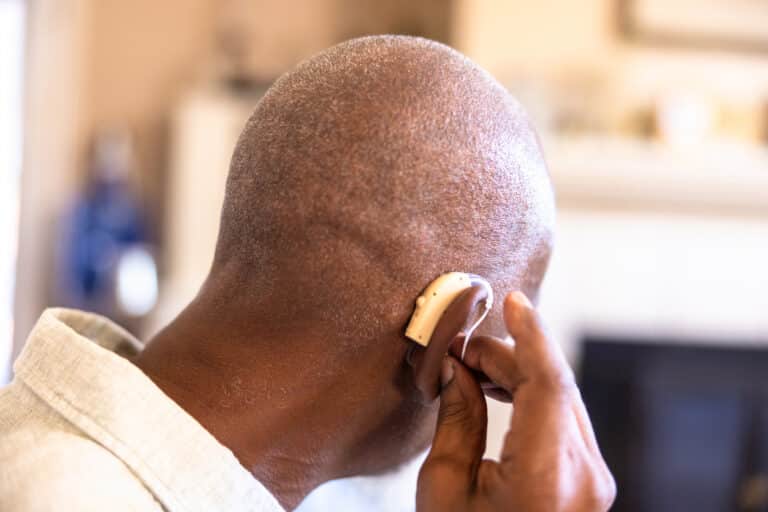Tinnitus, the presence of ringing or buzzing in your ears with no identifiable source, affects approximately 10% to 25% of adults. Tinnitus can either be temporary, lasting only a few minutes, or chronic, lasting three months or longer.
While temporary tinnitus is often easy to shake off, chronic cases can significantly affect your daily life. Common side effects include sleeplessness, irritability, trouble concentrating, difficulty communicating, anxiety and depression. While tinnitus has no known cure, hearing aids are one effective option to help minimize its impact on your life.
Hearing Aids and White Noise
One way hearing aids help manage tinnitus is through a technique called sound masking. Sound masking uses calming, external noises to distract the brain from the internal ringing of tinnitus, minimizing its negative impact on you.
A few common sound masking options include:
- White noise
- Brown noise
- Pink noise
- Nature sounds (rain, ocean etc.)
- Amplified external noises
If your hearing aids are not programmed to play white noise, you may be able to use Bluetooth® to deliver white noise videos directly to your ears.
Hearing Aids and Auditory Stimulation
An estimated 90% of tinnitus cases occur with an underlying hearing loss. Many researchers suggest that this correlation is due to changes in how the brain processes noise with hearing loss. With less sound reaching the brain, it adjusts by changing how it processes sound frequencies. When these changes go wrong, they create the ringing or buzzing sensation known as tinnitus.
Hearing aids amplify the sounds in your environment, from conversations to tweeting birds in Golden Gate Park. When these amplified sounds reach the brain, they reduce its need to fill the silence by creating tinnitus.
Find Tinnitus Relief Today
Tinnitus is highly personal, and what works for some people may not always work for others. If you already wear hearing aids, check your smartphone app or manual for a tinnitus masking feature. Try the feature out when tinnitus is interfering with your daily life. If your devices don’t have a masking feature, and the amplified external noises aren’t helping, it may be time to try other options.
Minimizing tinnitus symptoms is easier with help. Contact SH Audiology to review your options with one of our hearing specialists.

